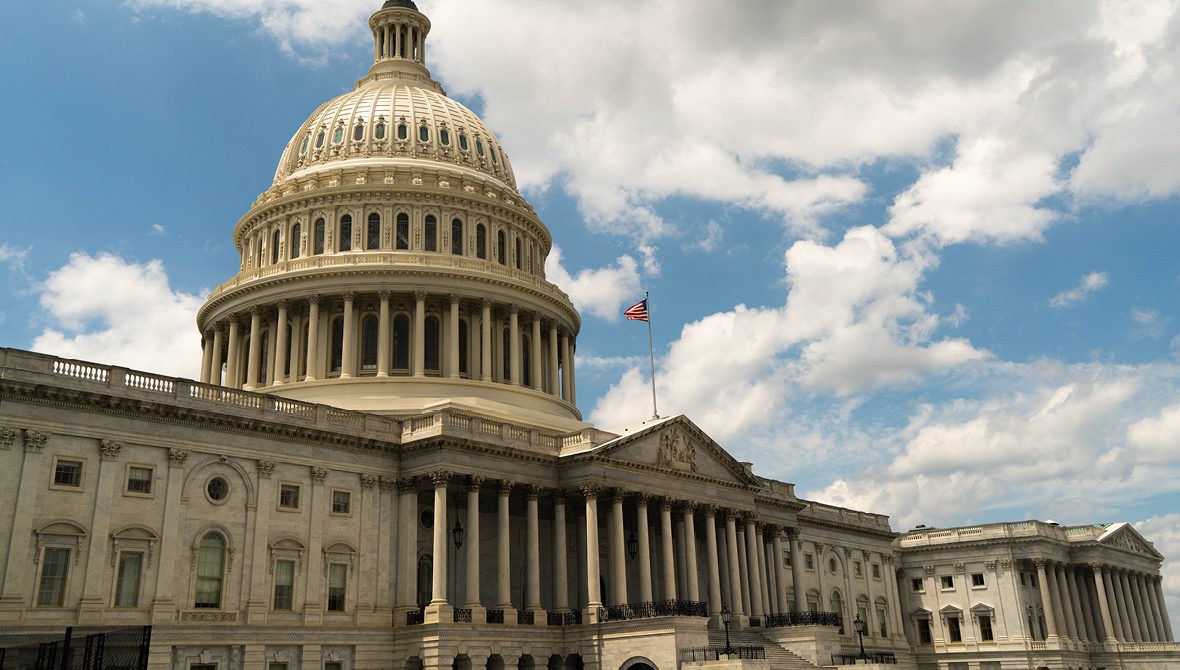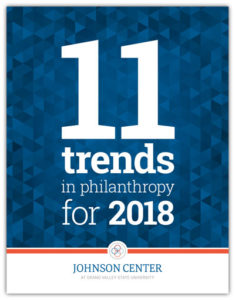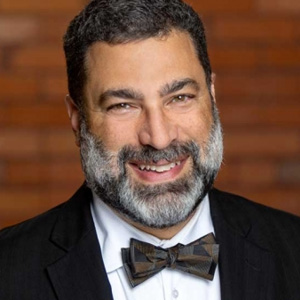How Repealing the Johnson Amendment Could Change the Game for Nonprofits


Download and read the full report, featuring all 11 trends, here.
 The recent proposed repeal of the Johnson Amendment is representative of a possible shift in how policymakers and society at large view the laws which govern nonprofits and ensure that the sector operates within some critical legal boundaries designed to maintain public trust. Since 1954, 501(c)(3) organizations have operated under a rule that prohibits any activity that expresses support for or opposition to a candidate running for political office. This legislation (HR 8300 of the 83rd Congress) is known as the “Johnson Amendment,” named for Lyndon Baines Johnson, who, as a senator from Texas, first introduced the text and led the effort for its inclusion in the tax code.
The recent proposed repeal of the Johnson Amendment is representative of a possible shift in how policymakers and society at large view the laws which govern nonprofits and ensure that the sector operates within some critical legal boundaries designed to maintain public trust. Since 1954, 501(c)(3) organizations have operated under a rule that prohibits any activity that expresses support for or opposition to a candidate running for political office. This legislation (HR 8300 of the 83rd Congress) is known as the “Johnson Amendment,” named for Lyndon Baines Johnson, who, as a senator from Texas, first introduced the text and led the effort for its inclusion in the tax code.
Repeal or weakening of the Johnson Amendment could impact philanthropy in four ways: a) nonprofits that engage in lobbying and public policy debates could be vulnerable to accusations of partisanship, b) “dark campaign funding” may invade the nonprofit sector, c) the bright lines between church and state could crumble, and d) there is a danger that politicians might use charitable nonprofit organizations in their campaigning to avoid disclosing their donors.
Proponents of repeal, led by a limited number of predominantly Christian faith leaders and conservative politicians, are seemingly interested in preserving, if not extending, religious liberties. In a 2016 campaign pledge to faith leaders, Candidate Donald Trump announced his interest in repealing the rule. Since that time, President Trump signed Executive Order 13798 directing the U.S. Department of Treasury not to pursue any matters that might find a church or religious organization guilty of acting outside of the Johnson Amendment’s restrictions. Additionally, several bills have been introduced in the House and Senate that seek to repeal the rule altogether, including several that had been part of draft versions of tax reform legislation.
Nonprofit and philanthropy advocacy groups, such as Independent Sector, the National Council of Nonprofits, and the Council on Foundations, along with a coalition of faith groups, largely oppose the amendment’s repeal. (Council on Foundations, 2017) Among many concerns, they argue that 501(c)(3) donors could claim tax deductions for contributions to political campaigns, a practice that is currently prohibited under U.S. tax law.
According to the Pew Research Center, most Americans (66 percent) agree with the provisions of the Johnson Amendment (Smith, 2017). It is possible that if changes in current law open the doorway for other types of support — such as campaign donations and political speech — it could erode trust in charities. Research into public confidence shows that the nonprofit sector is a leading institution when it comes to public trust: 74 percent have said that they trust charities with their checkbooks over the federal government and want to see expanded access to charitable giving (Independent Sector, 2016). Yet, that trust is not inviolate. Elsewhere, research shows a growing concern for how nonprofits spend donations (Perry, 2015).
Under current law, a 501(c)(3) has legal pathways to engage in lobbying in rather robust ways, and can even enhance that engagement by forming a 501(c)(4) that may form a Political Action Committee (PAC), a legal entity that can endorse political candidates. Still, it is unclear whether the values enshrined within the Johnson Amendment can still garner significant political support. Whether or not Congress at some point decides to repeal the Johnson Amendment, the conversation around the role of nonprofits and charities in politics is likely to continue.


Council on Foundations. (2017, November 13). Joint statement of the National Council of Nonprofits and the Council on Foundations. Retrieved from https://www.cof.org/news/joint-statement-national-council-nonprofits-and-council-foundations
Independent Sector. (2016). United for charity: How Americans trust and value the charitable sector. Retrieved from https://www.independentsector.org/resource/united-for-charity/
Perry, S. (2015). 1 in 3 Americans lacks faith in charities, Chronicle poll finds. The Chronicle of Philanthropy.Retrieved from https://www.philanthropy.com/article/1-in-3-Americans-Lacks-Faith/233613
Smith, G. A. (2017, February 3). Most Americans oppose churches choosing sides in elections. Pew Research Center. Retrieved from http://www.pewresearch.org/fact-tank/2017/02/03/most-americans-oppose-churches-choosing-sides-in-elections/